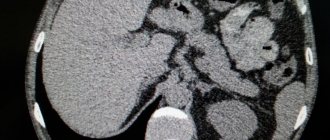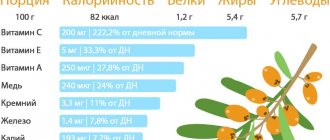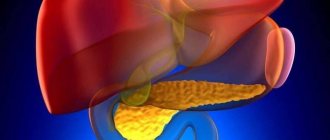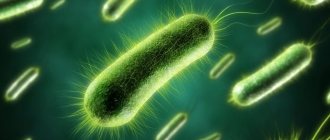Pancreatitis from stress: causes and symptoms
Stress can be a trigger that triggers inflammation in the pancreas. Signs of deterioration in organ health are:
- Painful sensations in the upper abdomen, which are girdling in nature;
- Increased body temperature;
- Disturbances in the digestive process;
- Gastrointestinal disorders, etc.
If you notice such ailments, you should contact a gastroenterologist.
Can pancreatitis worsen due to nervous conditions? Doctors believe that in patients with chronic pancreatitis, nervous problems can lead to a relapse of the disease:
- Increased anxiety;
- Depression;
- Emotional instability;
- Stressful situations, etc.
Thus, the so-called nervous pancreatitis can be either primary or secondary.
Increase the likelihood of developing inflammation in the pancreas:
- Heavily seasoned and fatty foods;
- Poor chewing;
- Abuse of coffee and alcoholic drinks;
- Products containing a high content of “chemicals”;
- Long-term use of certain medications.
With metabolic disorders and vitamin deficiency, there is also a risk of pancreatitis. Other causes are parasitic and infectious diseases, pancreatic injuries and previous operations on the gland.
Psychotypes at risk of disease
With the help of psychosomatics, people are distinguished between psychotypes that are most at risk of developing pancreatitis. These include:
- tough-willed individuals who constantly control family members and employees, who take responsibility for problems,
- weak people who feel constant fear for themselves, pity, have no willpower, are unable to deny themselves something,
- people who did not receive proper attention and love in childhood, require the care and participation of loved ones, they need the disease as a means of manipulation.
The body's reaction to emotions
Emotions characterize an individual’s experiences, feelings, attitude towards reality and towards oneself.
The main human emotions are:
- fear,
- joy,
- anger,
- anxiety,
- resentment,
- guilt.
Vital emotions include those associated with a threat to well-being, health or life: fear of death, anxious anticipation of misfortune.
Some varieties can be confirmed objectively. For example, manifestations of depression are recorded based on indicators of blood circulation, respiration, and blood composition (glucose levels, adrenal substances).
It is believed that all emotions are associated with the pancreas. There is a distribution of psychosomatic “responsibilities” between the liver and the state of the gland: the liver contains information about the past, and the pancreas reflects the present. Her health is determined by the degree of adaptation of a person to life, connection with other individuals.
Psychosomatics of pancreatitis of the pancreas
Pancreatitis and nerves are closely interrelated, as confirmed by psychological studies. A relationship has been discovered between personality type and propensities for certain diseases.
Nervous pancreatitis, more often than others, is observed in people with the following character traits:
- The desire to control everything;
- Ease of excitement;
- Strong-willed character;
- Success in realizing planned activities and dreams;
- Independence;
- Inability to obey;
- Extroverts;
- Selfishness;
- Self-flagellation;
- Touchiness.
As a rule, the formation of the above traits occurs due to lack of attention from parents. The lack of affection and care in childhood is reflected in adulthood. Behind the mask of successful and active people often hide people who are insecure and deeply sad inside.
“Eating” our childhood grievances and indignation, the emphasis in nutrition unconsciously shifts to sweets, processed foods, spicy and salty foods - all those harmful things that seem incredibly tasty and satisfying to us, and most importantly, soothing. In addition, due to changeable mood, stress and depression, a person’s performance decreases and hormonal levels are disrupted.
What is psychosomatics?
An alternative direction in medicine is psychosomatics. Translated from Latin, the name means “the influence of the soul on bodily illnesses.” It turns out that different human organs react vividly to stress, emotions, and mood.
Specialists: psychotherapists, psychiatrists, psychologists help to identify dangerous mental causes in a timely manner. The results of psychosomatic studies relieve a person from the disease and prevent exacerbations.
The science of psychosomatics does not operate with conventional analyzes, but with the results of monitoring the behavioral reactions of patients. The psychological approach to therapy problems is not readily available to general practitioners.
How to treat nervous pancreatitis
The basis of treatment is correction of diet.
- Alcohol, coffee and carbonated drinks are necessarily excluded;
- During the day, food is consumed in small portions 6 times a day;
- You will have to give up granulated sugar, baked goods, spicy and fatty foods;
- Protein predominates in the diet;
- The consumption of carbohydrates and coarse fiber is minimized;
To increase the effectiveness of treatment, a course of vitamins and sedatives is prescribed to relieve emotional stress.
Prevention of nervous pancreatitis
Overeating due to stress threatens to result in nervous pancreatitis. In order not to lose sight of this, it is important to realize that the habit of “eating” worries and fears will not bring anything good!
- Eating food should be accompanied by a feeling of hunger. There is no need to eat with company without feeling the urge to be full, or succumbing to boredom. A strict menu and meals at certain time intervals will help with this;
- Having a hobby is the best cure for boredom! Bring something interesting or useful into your life. This could be physical activity, a section, a hobby, etc.
- If you can’t prevent “eating”, replace junk food with fruits, berries or vegetables. Eat a few berries, nuts or dried fruits instead of reaching for soda, fast food or a bun.
Herbal medicine contributes to the regulation of digestion and the psychological state of the patient. For example, herbal teas and decoctions can have a mild sedative effect. Relaxing baths and massage treatments will also help you find harmony with yourself.
The main cause of periodic exacerbations of pancreatitis is enzymatic insufficiency of the pancreas. An insufficient number of acini makes it difficult to supply the required amount of enzymes into the lumen of the duodenum.
As a result, inadequate digestion and absorption of nutrients occurs. In chronic pancreatitis, the entire hepatobiliary zone suffers: the liver, the gallbladder, and especially the intestinal digestion.
As a result, malabsorption (insufficient absorption) develops. As a result, plastic metabolism suffers, and the human body does not receive a certain amount of carbohydrates, and especially proteins and fats, since their digestion is the most energy-intensive and requires the participation of enzymes produced by the pancreas (for example, pancreatic lipase).
But none of the gastroenterologists and surgeons can accurately answer this question: is nervous pancreatitis a correct diagnosis? And, in general, can inflammation of the pancreas develop as a result of stress? It is known that the most “stress-related” diseases are:
- hypertensive crisis;
- acute attack of angina pectoris;
- myocardial infarction.
Due to psychological tension, anxiety and stress, a person may experience a stroke, seizure, fainting and other symptoms. Okay, but maybe there is another, alternative point of view on the causes of acute pancreatitis? Yes, I have. This is the so-called “psychosomatic direction”.
About psychosomatics, or why pancreatitis occurs?
There are a number of diseases that are a direct consequence of the patient's emotional disorders. Such diseases include panic attacks, bronchial asthma, arterial hypertension, autonomic dysfunction, and irritable bowel syndrome.
All of these diseases can indeed occur under stress, and in all cases there is either very good diffuse autonomic innervation, for example, of the intestines or bronchi. This allows you to trigger mechanisms of either bronchospasm or a change in the tone of the muscles of the intestinal wall.
The actual role of “nerves” in the development of pancreatitis
But our life is structured in such a way that all diseases really come “from nerves,” as the popular proverb says. And pancreatitis is no exception. And there is a connection between the disease and the nervous system, but not direct, but indirect.
And here you need to keep in mind two fundamental factors:
- In case of chronic stress, depression occurs, which leads to dissatisfaction.
And often a person has no choice but to “eat up” his stress. The patient consumes a huge amount of junk food, since no one indulges in cabbage stalks, but there are many lovers of sweets and smoked lard.
Therefore, there is a direct connection between stress and errors in diet. Stress needs to be dealt with in other ways;
- Regular consumption of alcoholic beverages is also a very common way to relieve stress.
Quite often, this takes on the character of prolonged drinking bouts (alcoholism), the consumption of factory-made alcoholic beverages is stopped, people begin to use surrogates, and all this leads to acute pancreatitis.
Therefore, in any case, the influence of the nervous system on the development of inflammation of the pancreas is indirect, and occurs through excess load on the digestive tract.
Therefore, instead of “eating” your stress, you need to eat right and avoid eating refined, spicy, smoked foods, pickles and marinades, and strong alcohol.
You should not overload your body with excess food, especially after a period of prolonged abstinence. It is much more useful to know how to prevent a disease than to know how to treat it.
Common causes of pancreatic diseases
Official medicine points to the most obvious causes leading to pancreatic pathology:
- violation of the regime and rules of healthy eating (long periods of hunger, overeating, alcohol abuse, habit of fatty meat dishes, spicy seasonings),
- functional disorders of the intestines and stomach with hyper- or hyposecretory function, biliary dyskinesia associated with anxiety in a child with experienced fear,
- chronic pathology of the digestive organs, cholecystitis, gastroduodenitis, peptic ulcer and cholelithiasis, hepatitis, which create difficult conditions for the release of pancreatic secretions into the intestines, stagnation, and contribute to the spread of inflammation,
- negative influence of the nervous system during the development of pancreatitis from stress, against the background of depressive states.
The reasons include everything related to the “nervous soil”. Who will answer how the patient should overcome his life problems in treatment?
Scientific basis for psychosomatic causes of pancreatitis
Psychosomatic causes are based on the processes of excitation and inhibition in the centers of the brain and the reticular formation of the hypothalamic region. Neurophysiology has proven the validity of the connection between the pain syndrome in pancreatitis and the influence of emotions, such as nervous activity.
There are ways in which factors influencing the pain response are studied. They can even be measured and recorded on an encephalogram.
How can we explain that not all heavy alcoholics develop pancreatitis? Why do the peoples of the Caucasus prefer spicy dishes when eating and do not suffer from pancreatic necrosis?
We get information if we remember the psychological behavior of each person in similar situations. In a state of discomfort (including fatigue, depression), the natural choice of the psyche is to feel sorry for itself, to evoke the opposite emotions (joy).
It is important that at this time we do not think about the benefits or harm of the chosen measure. The diet is no longer under control: you want something tasty. At the same time, physical activity is reduced. Over time, this behavior will lead to overload of the pancreas and other digestive diseases.
Psychosomatics considers important causes of pancreatitis:
- fear,
- anger,
- anxiety.
The development of pancreatitis is promoted by the following conditions:
- doubts, temptations, internal struggles,
- subconsciously attracting the attention of others (benefit from care),
- mental depression,
- guilt,
- strengthening the problem through constant thoughts (self-hypnosis).
Metaphysical causes of pancreatitis
Metaphysics includes causes and concepts hitherto unexplained by modern science. This includes alternative medicine and forms of spiritual life.
It is interesting that the conclusions are based on an analogy between the functioning of an organ of the body and human behavior.
We will present the most popular metaphysical opinions about the nature of pancreatitis.
Opinion 1. The pancreas, by the nature of its functions, is associated with the digestion of food. Accordingly, in the transfer to a person’s abilities there is acceptance and assimilation of the situation. Just as iron is capable of self-digestion (destruction), so some people destroy and do not recognize themselves as individuals.
This is an eternally doubting, insecure, apathetic melancholic person who “nags” himself. The typical focus of activity is not on the problem, but on oneself, lack of goals, lack of faith in one’s own capabilities.
Opinion 2: Pancreatitis develops due to the body’s incorrect response to emotions. Positive emotions expand the body, negative emotions narrow it, slow down the flow of energy, and fill a person with cold.
Each of the emotions is necessary to express the state of the body (for example, anger promotes defense). An adult is not always able to express his emotions; he suppresses them. Therefore, first there is a feeling of discomfort, then pancreatitis.
Opinion 3: The pancreas is located in the third chakra of the solar plexus. She is responsible for collecting experience, knowledge, relationships with people. Capable of picking up frequencies of other bodies. Based on these signals, a person subconsciously chooses the optimal communication tactics. The chakra directs strong desires into creative energy and reveals talents. The energy failure along the way destroys the pancreas.
Opinion 4. Pancreatitis occurs as a result of dissatisfaction with life, anger, and feelings of hopelessness.
Opinion 5. The reason for the destruction of the pancreas is greed. It causes a disruption in the synthesis of hormones, and with unbridled greed - cancer.
Opinion 6. By prohibiting oneself from emotions, forcing oneself to exercise restraint, a person increases the craving for unhealthy eating. Obesity and overload of the pancreas appear.
Opinion 7. Envy is considered the main negative emotion. It is caused by the need to have what others have. Accompanies increased demands and dedication to work.
The given options indicate the connection between a person’s personal qualities and risk factors for pancreatitis. If the personality is in order, then the pancreas will not hurt.
Can your pancreas hurt?
Pancreatitis has two main types: acute and chronic. Acute pancreatitis is a rapidly developing inflammation of the organ caused by self-absorption of the gland by enzymes. Timely contact with a specialist is a sure chance for recovery. Otherwise, you will face serious complications or even death.
When the pancreas hurts, what symptoms indicate acute inflammation:
Vomiting and nausea.
A sharp pain that begins to radiate from the abdomen to the back when moving.
Unlike the chronic form, the exact cause of the acute version may remain unknown. The patient is undergoing treatment under observation in the hospital. Depending on the severity of the lesion, individual therapy is selected and a diet is prepared. A single attack may not have serious consequences, while a repeated attack may lead to diabetes or other diseases.
Symptoms when the pancreas hurts, according to statistics, in 7% of cases may not manifest as pain and go unnoticed - this is the so-called latent pancreatitis, accompanied by oily stool, weight loss, general lethargy, etc.
Chronic pancreatitis is a progressive inflammatory process, during which improvements and stabilization are replaced by acute attacks. Pain is one of the first signs of pancreatic dysfunction. In the chronic course of the disease, it can be localized in any part of the organ: head, body or tail, depending on where exactly the focus is located.
If the pancreas is bothering you, the symptoms are as follows:
Inflammation of the head of the gland radiates to the right hypochondrium.
The body of the pancreas sends a pain signal to the epigastric region;
When the inflammatory process is concentrated in the tail of the organ, the left hypochondrium hurts first.
If the inflammation has spread to the entire organ, the pain can be girdling in nature, and shootings in the back, chest, and under the left shoulder blade occur.
Often the pain can manifest as shooting sensations in the groin, tailbone, thigh or perineum.
Diagnosis is also complicated by the fact that in addition to localization options, the nature of the pain also varies: from mild aching to severe cutting. They can stay constant or come in waves.
As a rule, after eating, a diseased pancreas shows symptoms. Usually after 15 minutes, although in some cases after half an hour, spasms begin. Physical activity also causes discomfort due to stretching of the pancreatic capsule. To drown out the pain, you need to sit slightly leaning forward.
Treatment
In addition to the classic diet and the use of medications during an exacerbation of pancreatitis due to somatic disorders, patients are prescribed a consultation with a psychotherapist. This will identify and eliminate the underlying causes of the disease, which will help avoid relapses and complications.
Sessions with a psychotherapist help eliminate psychosomatic problems
Depending on the person’s character, the doctor prescribes individual or group classes. He can also decide on the advisability of using sedatives, physiotherapy and therapeutic exercises.
During the classes, patients are taught to use harmonizing thoughts to eliminate negative attitudes in the mind. Constant repetition of positive statements can improve your mood and quality of life, as well as get rid of diseases.
You can learn about the rehabilitation of patients after acute pancreatitis here...
Pancreas and pregnancy
When the pancreas hurts, what symptoms accompany its inflammation? Before answering this question, you need to understand where pancreatitis actually began. What reasons lead to the formation of an inflammatory process in the pancreas?
You will find detailed symptoms of the disease, types of pain, and features of the course of pancreatic disease. Symptoms when the pancreas hurts can be confused with other manifestations of dysfunction of the digestive system, so the diagnosis should be carried out by a qualified specialist. In the article you will also find answers to pressing questions about nutrition, the rehabilitation period, treatment methods, etc.
The pancreas takes part in the digestion of fatty, protein and carbohydrate foods. Among its functions is also the regulation of carbohydrate metabolism, which is carried out by pancreatic islets that release glucagon and insulin into the blood.
Doctors count many factors that have a negative impact on the condition of this important organ. So, the causes of pancreatic pain may include:
Frequent drinking of alcohol.
Complications of cholelithiasis.
Poisoning and intoxication of the body.
How does stress affect the pancreas?
Nervous pancreatitis is a disease characterized by inflammatory processes in the pancreas and impaired outflow of pancreatic juice due to overexcitation or prolonged depression. This is explained by a sharp increase in the level of secretion with simultaneous spasm of the ducts and vessels of the organ.
An attack of pancreatitis may occur in the workplace during times of severe stress.
Causes and symptoms
Clinicians note that quite often patients complain of nervous pain in the pancreas. This phenomenon has a scientific basis; it lies in the close relationship between the work of the nervous and endocrine systems of the body.
The work of all endocrine glands directly depends on the state of the nervous system
During times of stress, the consumption of sweet, fatty foods increases, which can trigger pancreatitis. There is an explanation for the fact that a person tries to “eat something tasty” on his problems.
The fact is that serotonin and dopamine, related to the hormones of joy, are released when eating tasty food, and especially sweets.
That is, the intuitive craving for chocolate, in this case, is a manifestation of the instinct of self-preservation, which prevents one from falling into depression.
Chocolate promotes the production of serotonin, one of the hormones of joy.
Foods that can lift your mood also include:
- bananas;
- citruses;
- orange fruits;
- avocado;
- eggs;
- hard cheeses;
- sea fish of fatty varieties;
- buckwheat, oatmeal;
- seaweed;
- chicken bouillon.
Attention! Happiness hormones are synthesized during physical activity, exposure to sunlight, massage, sex, laughter, even... solving logical puzzles, calm contemplation of nature.
But the human psyche is designed in such a way that during times of moral fatigue, people prefer a simpler way out of the situation; going to the gym is replaced by a hearty dinner, often combined with drinking alcohol. An aggravating factor is a decrease in the activity of the gastrointestinal tract during this period with a simultaneous increase in the synthesis of pancreatic enzymes.
All this allows us to assert that pancreatitis due to nervousness is a pathology that can be avoided with the appropriate knowledge and the desire to get out of the current situation with the least loss to health.
We recommend reading: Recipes for delicious pilaf for pancreatitis.
Psychosomatics of the pancreas
The mechanism of pain in the pancreas due to stress should be attributed to a greater extent to physiological phenomena, since the main provoking factor of inflammation is an excess of fatty, carbohydrate foods. But scientists have proven that there is another way of developing the disease, which is caused by so-called psychosomatic causes.
Frequent attacks of anger can trigger pancreatitis
A number of negative emotions and internal attitudes, which are the basis for the formation of pancreatitis, have been identified. These include:
- anger;
- greed;
- inability to accept reality;
- the need to keep everything under control;
- hopelessness;
- the need for love and support from loved ones.
A very detailed description of the psychosomatics of the pancreas and other organs is in Louise Hay’s book “Heal Yourself.” It contains tables of the most likely causes of the pathology, as well as new settings that will eliminate or avoid the disease.
The desire to control all aspects of life leads to constant anxiety.
On the one hand, a person creates for himself the illusion of order and stability, but at the same time his nerves remain tense, not allowing him to enjoy the results of his work.
Most often, such people cannot openly express their emotions for fear of losing control over them, as a result of which they accumulate negativity and anger within themselves.
These conditions provoke an increase in the volume of the pancreas and increased production of pancreatic juice, which does not have time to completely drain into the duodenum and begins to digest the tissues of the organ itself.
Feelings of uselessness for parents can form complexes in the child that lead to diseases
Treatment
In addition to the classic diet and the use of medications during an exacerbation of pancreatitis due to somatic disorders, patients are prescribed a consultation with a psychotherapist. This will identify and eliminate the underlying causes of the disease, which will help avoid relapses and complications.
Sessions with a psychotherapist help eliminate psychosomatic problems
Depending on the person’s character, the doctor prescribes individual or group classes. He can also decide on the advisability of using sedatives, physiotherapy and therapeutic exercises.
During the classes, patients are taught to use harmonizing thoughts to eliminate negative attitudes in the mind. Constant repetition of positive statements can improve your mood and quality of life, as well as get rid of diseases.
You can learn about the rehabilitation of patients after acute pancreatitis here...
Prevention rules
Happiness is the enemy of all diseases
The danger lies in not understanding the underlying cause of psychosomatic illnesses. Therefore, when the pancreas begins to hurt, a person starts using pharmacological drugs, not realizing that the root of the evil lies in his head.
There is a list of methods that help to avoid depression and get rid of complexes that lead to the development of organ pathologies at the physical level. Having learned about them, you should choose the appropriate option and constantly apply it in practice.
The most effective methods include:
- playing sports in accordance with physical capabilities and temperament;
- yoga;
- dancing;
- long walks until you feel physically tired and feel peace in your soul;
- cold and hot shower;
- consumption of foods that enhance the synthesis of happiness hormones;
- repeating appropriate affirmations;
- communication with positive people.
Doing what you love has truly healing properties. Drawing pictures, baking cupcakes, putting together puzzles, dancing, collecting various collections and many other hobbies that bring joy will displace negative thoughts and give a feeling of inner fullness. After all, no material good can fill the soul, no matter how expensive and valuable it is.
And a few more recommendations for eliminating depression and psychosomatic pathologies.
- Laugh more often. If this is difficult to do right away, then start forcing a smile. The contraction of certain muscles will trigger the production of hormones responsible for improving mood, and gradually the artificial smile will be replaced by a sincere, infectious laugh.
- Stay hydrated. The fact is that a lack of fluid in the body reduces the synthesis of dopamine, which is responsible for a good mood.
- Communicate with children and pets more often. They are sincere in expressing their feelings, they do not lie or betray, so you don’t have to pretend with them and you can be yourself.
- Never prove that you are right in a dispute. Firstly, a dispute can quickly escalate into a quarrel, and secondly, having won it, you can lose good relations.
- Do not communicate with pessimists and envious people.
- Learn to notice and appreciate the beauty around you.
This article will tell you how to cope with gastrointestinal neurosis.
At first glance, it may seem that these rules have nothing to do with pancreatitis.
But, having eliminated the psychological causes of depression, felt the joy of life and loved himself, a person stops consuming unhealthy foods, gets rid of bad habits and does not “eat” for his own weaknesses and mistakes. And these factors already have a beneficial effect on the functioning of all internal organs, including the pancreas.
We recommend that you read: Comprehensive diagnosis of pancreatitis.
If you liked the material: rate it and share with friends
Source
Nervous pancreatitis is one of the types of inflammation of the pancreas. Other factors in the occurrence of the disease are alcohol abuse, poor diet, hereditary predisposition, and related chronic diseases. What is the peculiarity of pancreatitis on nerve mail? Review of symptoms and treatments.
How does pain manifest itself?
To answer the question of how the pancreas hurts, we need to talk about the pathology:
- The main symptom of acute pancreatitis is severe pain in the upper abdomen. They cannot be removed with antispasmodics and analgesics. There is often vomiting, abnormal bowel movements, and lethargy. The main signs of pancreatitis on ultrasound of the pancreas are a change in shape and irregular contours, the appearance of a cyst.
- The disease develops in a complex manner. There is a high probability of death.
- Pain is the most worrying sign of chronic pancreatitis. The pain is localized in the epigastric region, moving to the hypochondrium and hitting the back. It can be shingles, it can get worse if you lie on your back, and become weaker when the patient sits down and bends over a little. They may appear or intensify 50-60 minutes after eating.
- Another unpleasant sign of the disease is diarrhea. The stool will become loose and may contain particles of undigested food. The amount of feces will increase significantly. Belching, nausea, gag reflex, and flatulence appear. There is a loss of appetite and rapid weight loss.
Read more about how to check your pancreas here.
Symptoms of pancreatic pain: how to get rid of them?
If your pancreas hurts, the symptoms described above are sure signals to see a doctor. After examination and testing, treatment begins.
Cold, hunger and rest are three components of recovery after an acute attack. On the first day, strict bed rest and complete refusal to eat are indicated. It is permissible to drink up to 6 glasses a day of herbal decoctions and infusions. Ice is applied to the painful area. In severe situations, painkillers are prescribed.
Drug treatment is carried out comprehensively in a hospital setting. The clinical picture, urine and blood results form the basis of the treatment concept, which includes:











